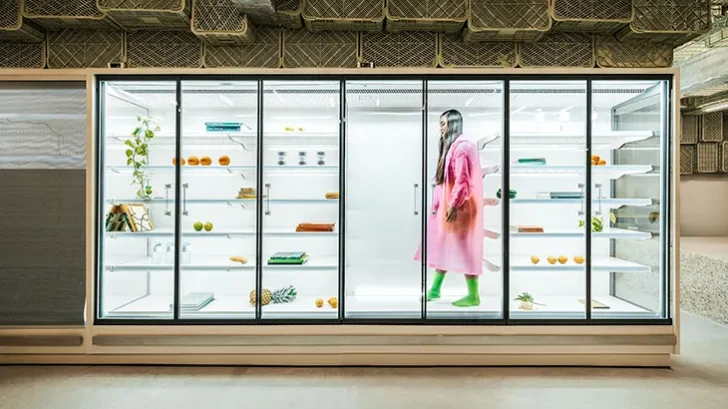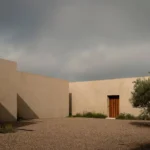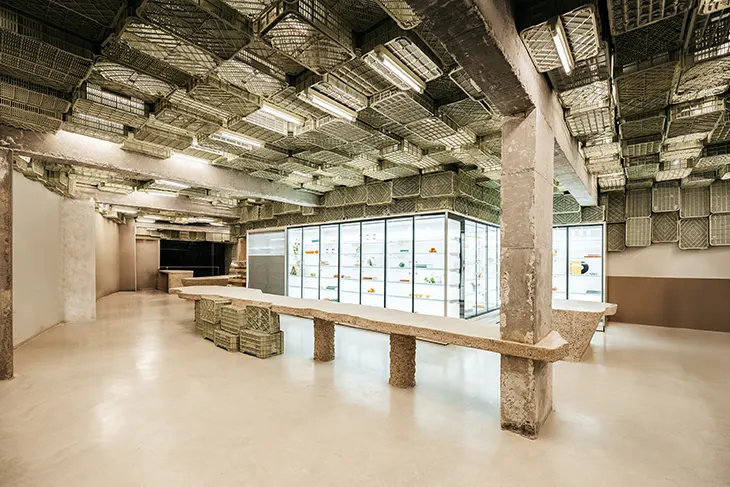
Plastic Box by Minimal Studio transforms Akelarre Supermarket into an architectural experiment. Instead of chasing retail polish, the studio embraces the raw logic of concrete and steel, shaping a brutalist container that feels closer to an installation than a commercial interior.
COMMERCIAL
The structure is a concrete shell, its façades reduced to bare geometry and dark entryways that swallow light before releasing it into the bright core. Inside, the atmosphere shifts, cold, heavy surfaces dissolve into precision and rhythm. Every plane of concrete and steel feels deliberate, emphasizing construction as aesthetic.
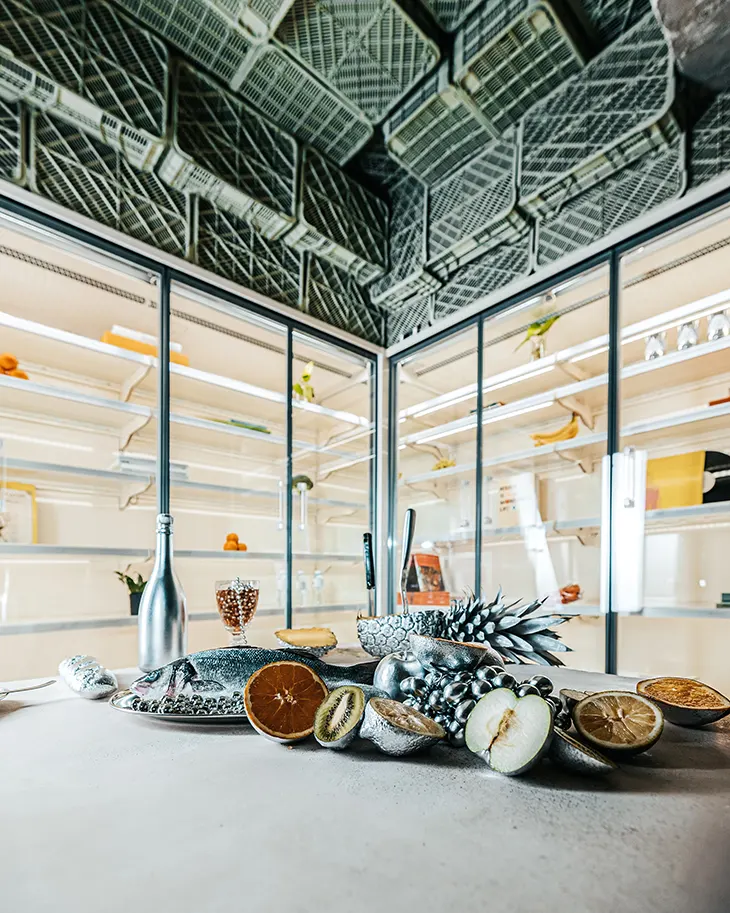
The ceiling becomes the project’s manifesto. Made from over a thousand recycled plastic crates, it filters light in a constantly changing grid, turning illumination into an architectural event. Each crate hides LED strips, ventilation, and even a rainwater collection system, function dressed as ornament.
Industrial reuse defines every decision. The shelving and checkout counters are sculpted from salvaged steel and polished concrete, while the neutral palette amplifies light and shadow. Products stand out not through branding but through contrast with the subdued environment, their colors briefly interrupting the architectural silence.
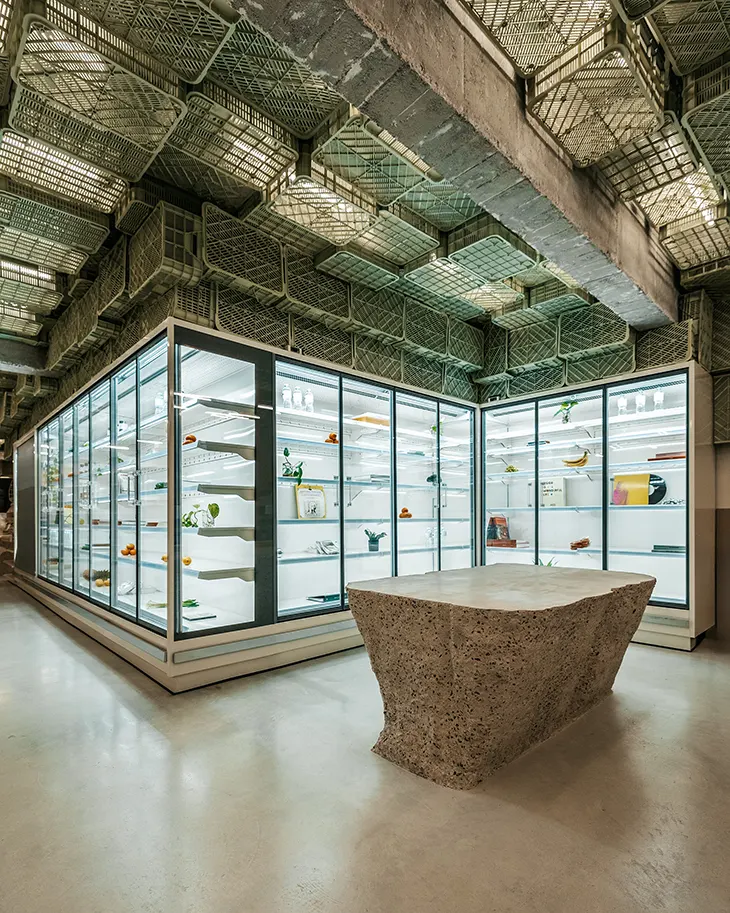
Plastic Box treats infrastructure as texture. Pipes, vents, and structural joints remain visible, celebrating construction rather than concealing it. The design plays with the tension between the mechanical and the human, reminding visitors that the supermarket is both machine and monument.
By transforming industrial leftovers into structure and light, Minimal Studio reshapes the idea of retail architecture. Plastic Box becomes a meditation on reuse and the aesthetics of function, a brutalist playground for those who prefer their milk and minimalism in the same aisle.
